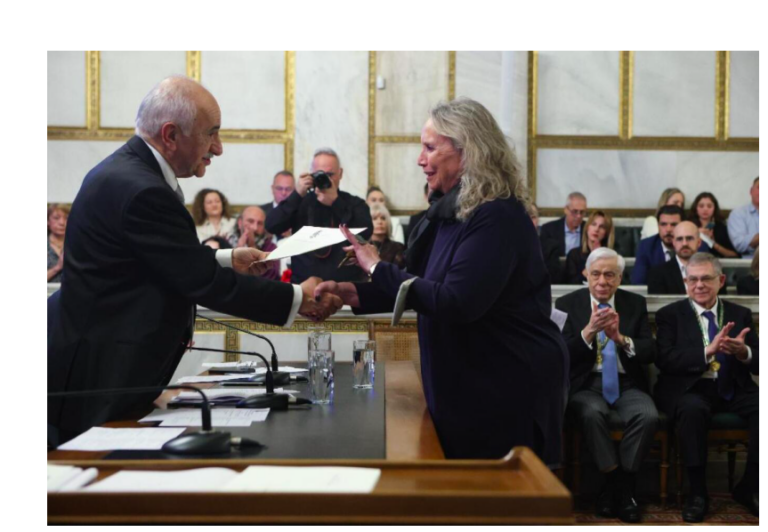The government has been signaling over the past few days that no overly ambitious announcements should be expected from Kyriakos Mitsotakis this coming Saturday from the podium at TIF. The tight fiscal constraints and stricter European regulations for Eurozone member states after the emergency period have passed, define the situation. As a result, the government is scraping the bottom of the barrel to find the necessary resources to finance critical interventions, especially for housing and family support.
Upcoming interventions, even those currently kept confidential by the government, will address everyday issues faced by citizens. Mitsotakis is focused on implementing “smart moves” that will have a meaningful impact on key social groups, while also keeping costs manageable.
Support for the public health system (ESY)
As reported by “Thema,” one possible surprise under consideration is further financial support for public health employees (ESY). Though the specifics aren’t clear, given the tight fiscal space, it is widely acknowledged within the government that the salaries of ESY doctors and nurses remain low. The formula and the amount of support will be locked in next week.
Previously, income support measures included a 10% ad hoc increase from the beginning of 2023 for 65 million euros, along with increases in the broader public sector salaries starting in 2024, worth 20 million euros. There was also a 20% increase in on-call pay for doctors, costing about 45 million euros annually. Despite this, ESY continues to struggle.
Other solutions have been sought, such as allowing ESY doctors to work part-time in the private sector or to receive extra compensation through participation in afternoon surgeries or by serving as personal doctors. Additionally, the Ministry of Health is expected to issue a new ministerial decision offering incentives to doctors in remote areas.
Funds for school buildings
Another focus is on education. During a meeting last Thursday, Mitsotakis and Minister Kyriakos Pierrakakis announced 11 initiatives for schools, including hiring 10,000 permanent teachers. Discussions also included restoring punishment for students who use mobile phones in class.
However, school interventions go beyond disciplinary measures or the digital tutoring initiative. Renovations of old and deteriorating school buildings are also on the agenda. According to “Thema,” the Ministry of Education has found a substantial fund for building renovations, although the final amount hasn’t been finalized yet. These renovations are expected to follow the modernization efforts seen in hospitals, largely funded by the Recovery Fund.
Support for families
A key part of Mitsotakis’ address in Thessaloniki will focus on significant support for families facing high living costs. The government has completed the National Plan for Demographics, coordinated by the Ministry of Social Cohesion and Family, though Mitsotakis held off on including it in the Wednesday Cabinet meeting agenda, intending to announce the crucial measures himself.
Some measures have already been anticipated, such as an increase in child benefits, housing allowances, and possibly even the Minimum Guaranteed Income. “Thema” also revealed plans for a more proportional and upfront unemployment benefit scheme with stricter eligibility requirements.
Another major decision the Prime Minister will make involves equalizing families with three children to those with four or more. This would result in a range of discounts and benefits across various aspects of social life. The Ministry of Education is also working on interventions regarding university transfers for these families. However, there are no plans for further support for families with a second child or single-parent families beyond the existing framework.
One potential measure being considered, with low fiscal impact but high symbolic value, is reducing the tax rate to the minimum for bonuses that large companies give for having more children. For example, Motor Oil announced in April that it would offer employees’ families 5,000 euros for each child after the second one at birth, age six, age 12, and upon reaching adulthood. Though symbolic, these amounts are taxed, and the goal is to encourage companies to support families facing disproportionately high living costs.
Interventions for many
After a tough summer, an unexpected result in the European elections, and a fire in Attica that damaged the government’s image despite an otherwise successful fire prevention season, the government is seeking a political reboot, focusing on reforms and interventions that address everyday concerns, whether big or small.
Mitsotakis is preparing his speech for next Saturday, with a four-year horizon in mind, given that the next election will be in 2027. He emphasizes this point in discussions with various visitors to his office these days, making it clear that he doesn’t intend to rush decisions.
Between making a few impressive, targeted announcements at TIF and unveiling more, smaller-scale measures for a wider range of social groups, Mitsotakis seems to favor the latter strategy. Suggestions for the former have been made, mostly by New Democracy MPs who, in private discussions, express concerns based on feedback from their constituencies.
Mitsotakis, however, must balance the political necessity of rekindling momentum with not blowing the budget. He also needs to show that the next period will be about fulfilling commitments, not just making new ones.
Projects, not just plans
A key part of the Prime Minister’s strategy is to ensure that upcoming public works will have a visible impact on citizens. A major focus is Thessaloniki, as seen in Mitsotakis’ recent visit to the city, where he announced that the metro will finally be operational by November 30 this year after multiple delays.
The expansion towards Kalamaria is planned for 2025. Regarding the Flyover project, which is expected to relieve the city’s traffic congestion, Mitsotakis has pledged that it will be completed before the 2027 elections. During his recent meeting with New Democracy MPs from Thessaloniki, a positive change in the city’s mood was noticeable, thanks partly to the introduction of several new buses.
Approximately 110 electric buses now run daily in the city, making up about one-third of the fleet, significantly improving the situation. A similar intervention is underway in Athens, with 30 out of 211 newly delivered buses already in service. A further 300 buses are pending approval from the Court of Audit.
In any case, the government’s slogan is “projects, not just plans,” and the next few months are expected to be filled with inaugurations. For example, on Monday evening, Mitsotakis will visit the flood-stricken Thessaly region, specifically Larissa, where, along with a government team and regional governor Dimitris Koureta, they will present the flood control projects underway in the wake of the major damage caused by Storm Daniel.
Two bonus salaries for 30,000 public sector employees
The Ministry of the Interior will also put forward a new bill for public consultation in the coming days, extending a rewards system piloted in selected public sector units over the past two years.
This bill introduces a financial reward and benefits system across the wider public sector, potentially offering one or even two extra salaries per year, in addition to the regular 12 salaries received annually.
Starting from January 1, 2025, annual targets will be set for each ministry, and even for legal entities or local government organizations not previously included in the performance and reward system piloted. Employees who benefit will know the targets and action plans assigned to them from the beginning of the year. They will also be able to calculate their reward based on a specific formula outlined in the bill.
4o
Ask me anything
Explore related questions





